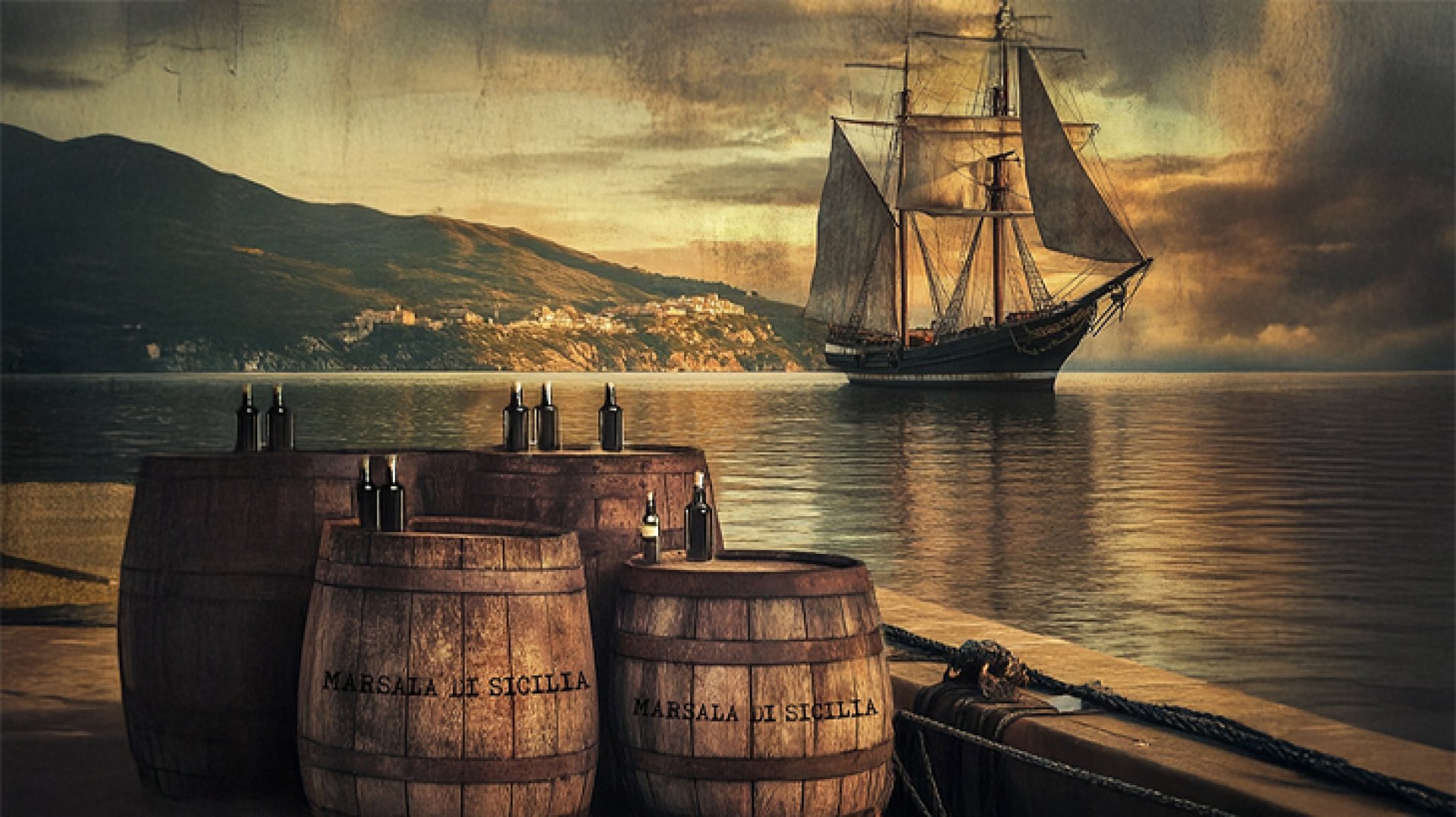Marsala

Origins in Western Sicily
Marsala is a famous fortified wine originating from the port town of Marsala on the Italian island of Sicily. Known for its rich, sweet flavors and complex aromas, Marsala is enjoyed both as a dessert wine and as a key ingredient in cooking.
An Englishmans Discovery
In 1773, English merchant John Woodhouse discovered a local wine called Vino Perpetuo during a trade visit to Sicily. To prevent spoilage on the voyage back to England, he fortified the wine with brandy. The result not only survived the tripit tasted even better.
A Hit in England
Back in England, Marsala was an instant success. With a market already fond of Sherry and Port, Marsala fit in perfectly. Encouraged by demand, John returned to Sicily to set up a winery and scale up production for export.
Others Follow Suit
Woodhouse's success inspired other entrepreneurs, like fellow Englishman Benjamin Ingham, who expanded Marsalas reach to the Americas. In the 19th century, Vincenzo Florio, a Sicilian businessman, elevated the wines prestige and created one of the regions most respected Marsala brands.
Traditional Aging: In Perpetuum
Marsala is aged using the In Perpetuum methoda dynamic system similar to Spains Solera, where older and younger wines are blended in oak barrels. This creates layers of flavor and exceptional depth.
Quality Seals: DOC and PDO
In 1969, Marsala was granted DOC status by the Italian government to preserve its traditional production. Later, the EU awarded it PDO recognition, offering international protection and reinforcing its authenticity.
Types and Classifications
Marsala comes in various styles based on color (Ambra, Oro, Rubino), sweetness (Secco, Semisecco, Dolce), and aging:
- Fine 1 year minimum
- Superiore 2 years
- Superiore Riserva 4 years
- Vergine 5 years
- Vergine Stravecchio 10+ years
A Wine for Every Occasion
Marsala is incredibly versatile: dry and semi-dry versions enhance savory dishes, while sweet Marsala pairs beautifully with desserts and aged cheeses. Its a staple in both cellars and kitchens around the world.


